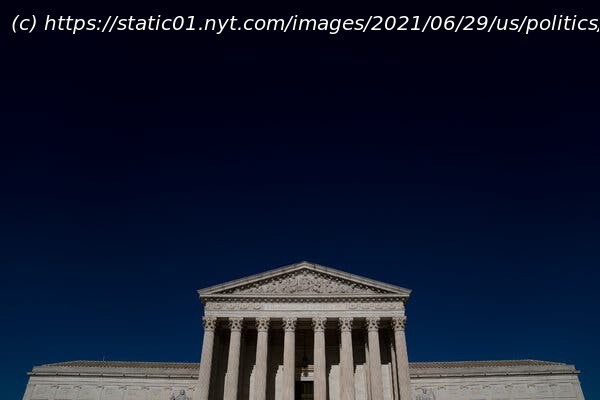By a 5-to-4 vote, the court said the federal government could delegate its power to condemn state property to a private company.
The Supreme Court cleared the way on Tuesday for a pipeline to transport natural gas from Pennsylvania to New Jersey, ruling that PennEast Pipeline Company, the project’s developer, may exercise the federal government’s power of eminent domain to condemn land owned by New Jersey. The vote was 5 to 4. Chief Justice John G. Roberts Jr., writing for the majority, said the government was entitled to delegate its power of eminent domain to private parties even where state property is at issue. “We are asked to decide whether the federal government can constitutionally confer on pipeline companies the authority to condemn necessary rights of way in which a state has an interest,” Chief Justice Roberts wrote. “We hold that it can.” Justices Stephen G. Breyer, Samuel A. Alito Jr., Sonia Sotomayor and Brett M. Kavanaugh joined the chief justice’s majority opinion. Under the Natural Gas Act, a federal law, the federal government can authorize private companies to use its eminent domain power in at least some circumstances. PennEast obtained federal approval for its proposed 116-mile pipeline, to run from Luzerne County in Pennsylvania to Mercer County in New Jersey, and federal officials gave it the power to condemn property along the route. New Jersey, which has ownership interest in many of the parcels of land the company sought to condemn, objected, saying that the doctrine of sovereign immunity, which generally forbids private parties from suing states in federal court, banned the company’s efforts. A unanimous three-judge panel of the United States Court of Appeals for the Third Circuit, in Philadelphia, agreed with New Jersey’s position, ruling that the federal law did not authorize private parties to take state property.






